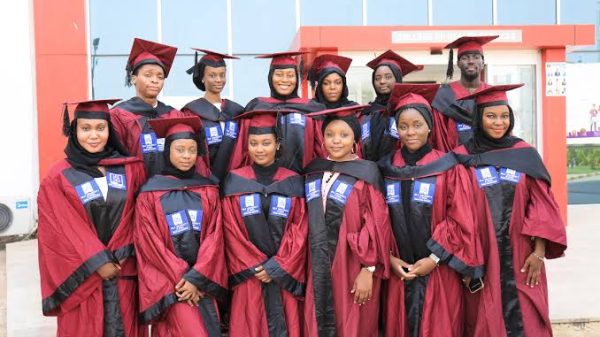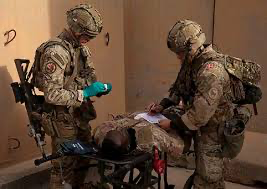Courses Offered At Nigerian Army School Of Medical Sciences
The Nigerian Army School of Medical Sciences (NASMS), situated in Ojo, Lagos State, serves as a premier institution for military personnel seeking education and training in the healthcare field.
The school was established in 1970, and has evolved into a multi-faceted center of excellence, offering diverse academic programs catering to the professional development of officers within the Nigerian Army Medical Corps.
Understanding the specific educational needs of military medical personnel, NASMS curates a curriculum specifically tailored to enhance their capabilities in operational and peacetime medical settings.
The school’s academic offerings can be broadly categorized into two main domains:
1. Undergraduate Degree Programs:
-
Bachelor of Medicine and Bachelor of Surgery (MBBS):
This five-year program equips students with a comprehensive understanding of the human body, disease processes, and therapeutic interventions. Graduates qualify as medical doctors upon successful completion of the program and internship.
-
Bachelor of Science (B.Sc.) in Nursing:
This four-year program prepares students for a career in registered nursing, encompassing theoretical knowledge and practical skills in patient care, clinical management, and public health interventions.
-
Bachelor of Science (B.Sc.) in Physiotherapy:
This four-year program trains students in the art and science of physiotherapy, encompassing musculoskeletal rehabilitation, sports injury management, and neurological rehabilitation techniques.
2. Postgraduate Diploma and Certificate Programs:
-
Postgraduate Diploma in Family Medicine:
This one-year program provides medical officers with specialized knowledge and skills in primary healthcare delivery, equipping them to effectively manage a wide range of common medical conditions encountered in community settings.
-
Postgraduate Diploma in Public Health:
This one-year program focuses on public health principles and practices,training medical officers in epidemiology, health promotion, disease prevention, and environmental health management.
-
Certificate Courses:
Spanning diverse areas like disaster management, medical laboratory technology, and military psychiatry, these short-duration programs aim to enhance specific skill sets and knowledge crucial for specific military medical roles.
The academic faculty at NASMS comprises experienced medical professionals and military officers, ensuring a unique blend of theoretical knowledge and practical expertise.
The school adopts a student-centered learning approach, utilizing modern teaching methods like interactive lectures, simulation exercises, and clinical placements within military hospitals.
Admission to NASMS programs is through a competitive selection process, considering academic qualifications, physical fitness, and adherence to service obligations within the Nigerian Army.
Upon successful completion of their chosen program, graduates are commissioned as medical officers within the Nigerian Army Medical Corps, serving in various capacities across the country and contributing to military healthcare.
FAQs
What are the entry requirements for NASMS programs?
For undergraduate programs, the minimum requirement is five credits in English Language, Mathematics, Biology,Chemistry, and Physics in the West African Senior School Certificate Examination (WASSCE) or the General Certificate of Education Ordinary Level (GCE O’Level). Postgraduate programs usually require a relevant Bachelor’s degree and specific military service prerequisites.
Does NASMS offer scholarships or financial aid?
NASMS primarily caters to military personnel, who receive full financial support throughout their training. Scholarship opportunities for civilian students may be available depending on specific programs and collaborations with external stakeholders.
What are the career prospects for graduates of NASMS?
Graduates are commissioned as medical officers within the Nigerian Army Medical Corps, serving in various military hospitals and healthcare facilities across the country. Additionally, they may pursue specialized training in various medical fields or transition to civilian healthcare practice after completing their service obligations.








